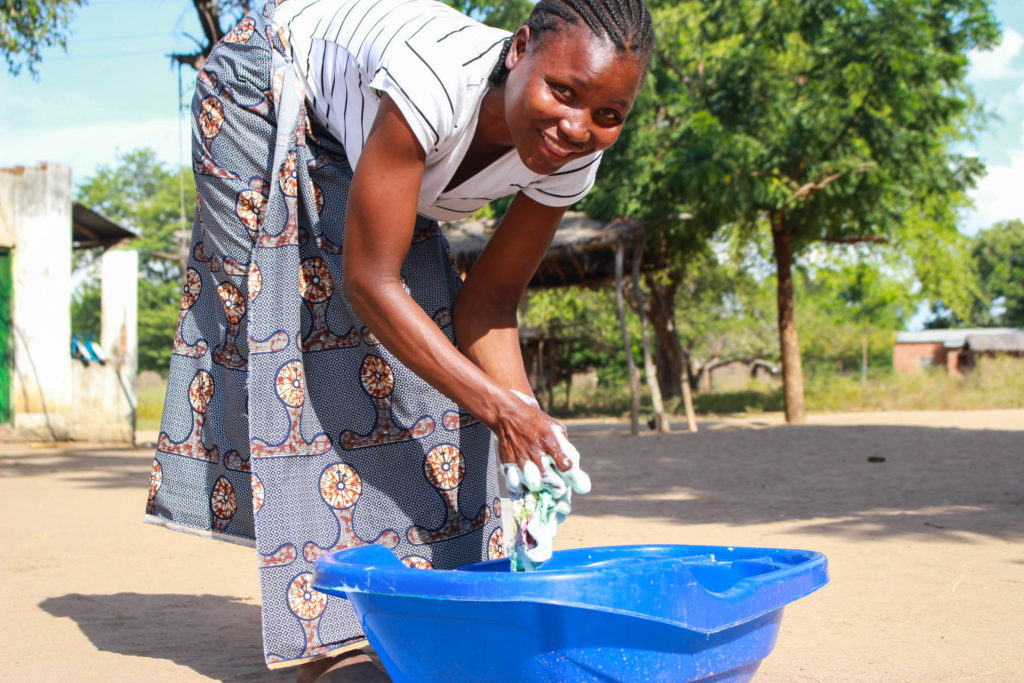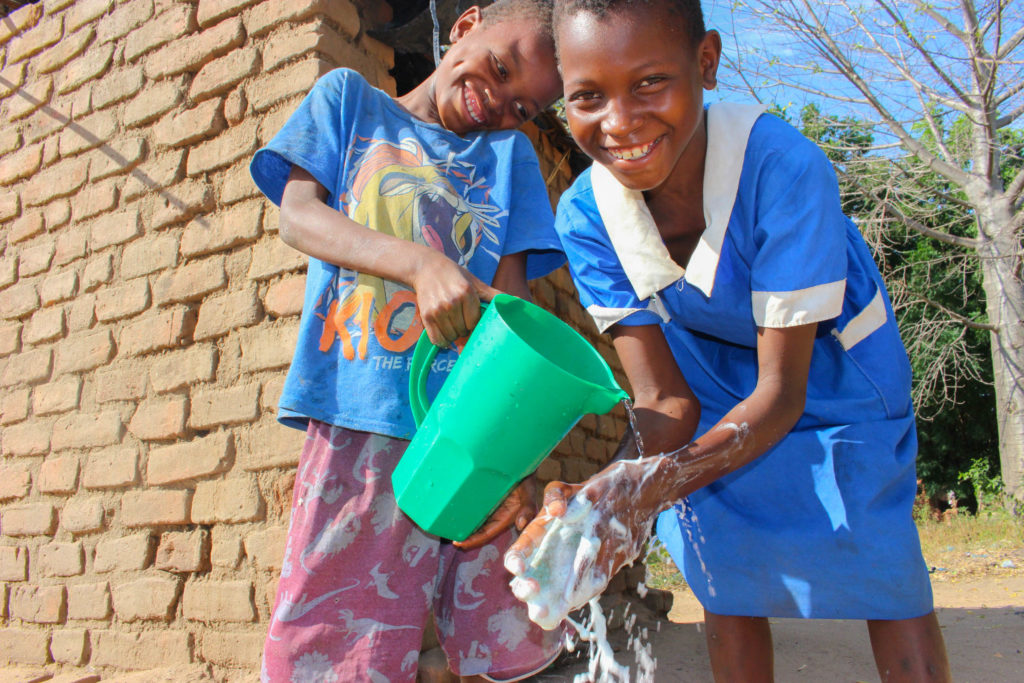Combine baking soda, oil, and extract from a local Malawian tree, and it equals better hygiene for an entire community.
Those are the ingredients for soap, and that simple formula has changed life for 160 families in the village of Mvula in Chikwawa District, Malawi.
"We saw that although families had constructed latrines, many of them did not have soap for handwashing and personal hygiene," explains Elina Banda, who is a member of the village soap-making committee. "It was mainly due to the high cost of bringing soaps from other towns. This lack of soap meant we were still experiencing some water-borne diseases."
Water For People and district health officials introduced the idea of soap-making to Elina’s community, and they came to train a 10-person committee on how to make soap.
"We were excited about the idea of a soap-making committee, because it would improve hygiene and allow soap to be found locally at a cheaper price," Elina says.

Elina has been on the committee for a year, and she helps produce the soap and promote it to families.
"We mix the soda, oil, and Neem tree fluids that we extract from pounding tree leaves," shares Elina. "Neem trees grow everywhere here, and the extract adds antibacterial properties to the soap. Then we boil the mixture slowly until it hardens."
The soap hardens after a week of drying, and then it is cut into pieces and sold for $0.13 per tablet. The committee markets the soap by going house to house to talk to families. They also promote it at community meetings, where they conduct demonstrations to show families the effectiveness of the soap.
"The community members like this soap because it is easily available and cheap," says Elina.
Elina and the other soap-making committee members want to continue to improve their product. They’re constantly improving the soap quality and their promotion of the soap.
"We want our soap to be the number one choice to our prospective customers and be able to reach out to other villages," Elina says.
The soap-making has had an impact beyond improved hygiene, because the committee takes the profits from selling the soap and uses them for loan capital. Committee members can take out small loans from this profit pool and use their loan to make improvements to their homes or business.
Elina has three children, and she says having drinking water, an improved bathroom, and now readily available soap in her community has made life so much easier for her family.
"When I was growing up, getting safe water was a challenge," she shares. "We had to walk long distances. As a small girl, I would often miss classes at school. I am happy that things have greatly changed now."

